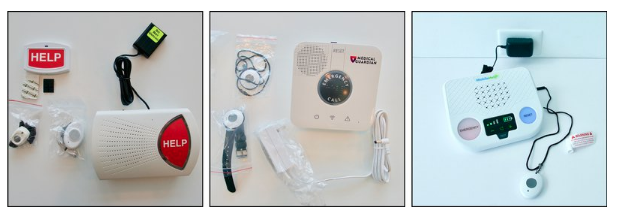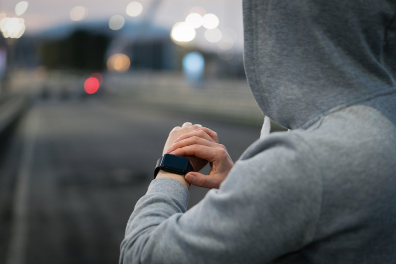Medical Alert Devices for the Elderly
Written by consumersadvocate.org

How To Find the Best Medical Alert Device
If you have an older parent, husband or friend that is not able to take care of themselves on their own, it’s not only disheartening, but can be hard on everyone. It’s hard enough that you need to be the one addressing all their needs, emotionally and physically, but then there is also the added task of convincing your loved one that they need to let you be in charge.
If you are in that position or even have hired a caregiver to help care for your loved one, a medical alert system can be a big help and relief for everyone. Medical alert devices can help a caregiver or whomever is looking after the senior in question to call for help if necessary.
Medical alert devices are not only imperative, but can even save a person’s life. If the senior in question is wearing a device and still has the ability to think on his or her own, he can get in touch with you, a caregiver or even emergency services if they have fallen or have been hurt.

How Medical Alert Devices Work
If your loved one or even a caregiver presses a medical alert button, they will be connected automatically to a monitoring service where the trained specialist that answers the phone can assess the situation and call the appropriate hospital or emergency services.
Some companies will also have the medical information of the senior in question in their records to help gauge the situation.
There are many different medical alert devices that will have the ability to protect your father or mother who is not only at home but if he wanders. Some of these devices have motion sensors that can help if your loved one falls or is any area of the home that poses more of a threat to themselves such as the top of a staircase.
Some questions to consider to help you choose the best medical alert device:
- Is the senior able to press a medical alert button in an emergency?
- Is it best to choose a device that is more specific for a person that wanders?
- Would you elderly loved one press the button too many times by accident?
What Types of Medical Alerts are Available?

When medical alert devices first became available, they were usually in the shape of a pin-style button that connects to a base station and hooked to a home phone landline. This was helpful but only for those who rarely left home.
Today, since technology has improved greatly, there are many different combinations of base stations and pendants that can be tracked much further. And, of course, this can be a very important feature for those that wander.
There are even mobile-phone based services that use a cell phone instead of a landline to connect. This feature can be great for those with dementia because they have a GPS position function to allow caregivers to know the exact location of the senior.
There are also different devices that contact the responsible caregiver if the senior falls or hurts themselves and can’t get to a phone on his own for help. As most of us know, falling is very common among the elderly.
Now that you have decided to purchase a medical alert system, there are some other things to consider before purchasing one.
The Equipment of the Device
It’s important to learn how the different systems work, the different components they include and how to maintain them.
With older systems, home bases will not work if the alert button isn’t close by.
If the senior has limited mobility, then you need to make sure to purchase a unit that has an alert button close to the base unit in every room that he or she might enter.
Contract
Of course, as with anything you purchase, it’s important to read the contract thoroughly to understand how the service works, how long the agreement is, trial periods and cancellation.
Many providers will offer discounts for longer-term contracts or if you pay more up front for the entire year.
Compare Pricing
Once you learn the best system for your needs, it’s important to get a few quotes to compare pricing.
Try to find the company that has the best system and service for the best price.
Read Customer Reviews

Once you’ve narrowed down the device you want and the price, the next thing to consider is how customers like the service.
Some things to consider:
- Does the service offer a trial period so you can test out the system?
- Is there any easy return policy or cancellation of the service if you aren’t satisfied?
- And, most important, does the system work well in the event of an emergency?
If you can find positive answers to all of the above, you can feel assured that you should have a good experience with the company and specific medical alert device.
Medical alert devices for your loved one are one of the most important devices that you will buy. With a little research, you will find the best medical alert device that will give you the reassurance that your elderly loved one or caregiver always has a way to get in touch with you or medical help if necessary.
consumersadvocate.org has created an in-depth review of some of the top Medical alert devices to help you make your choice.
If I NeedHelp makes wearable iD and offers a free Caregiver controlled special needs registry for our loved ones who may wander or need assistance in a critical moment.

